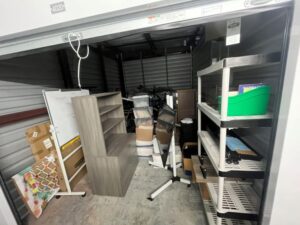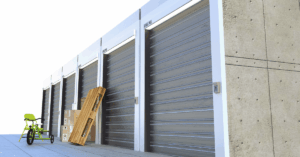In a world where clutter quietly accumulates and forgotten items gather dust, storage units have become a convenient but often costly solution. While they serve a purpose—offering space when we’re in transition or simply out of room—they can also become financial traps. Many individuals continue paying monthly rental fees for years without realizing the hidden value that lies within these rented spaces. A thorough storage unit cleanout is not only a step toward organization and clarity, but also a strategic financial decision with a host of benefits. From saving money to uncovering hidden assets, taking the time to sort through a storage unit can result in significant financial gains.
Reducing Ongoing Rental Costs
 One of the most immediate financial benefits of a cleanout is eliminating or reducing the monthly rental cost of the storage unit. Storage facilities can charge anywhere from $50 to several hundred dollars per month depending on the size and location. Over time, this recurring expense can add up to thousands of dollars. Often, people keep paying these fees out of convenience or the belief that their items have long-term value. However, many find that once they actually go through the contents, the majority of items are outdated, damaged, or no longer needed. A cleanout offers a chance to reassess the worth of the stored belongings and determine whether continuing to pay for the space is financially justifiable.
One of the most immediate financial benefits of a cleanout is eliminating or reducing the monthly rental cost of the storage unit. Storage facilities can charge anywhere from $50 to several hundred dollars per month depending on the size and location. Over time, this recurring expense can add up to thousands of dollars. Often, people keep paying these fees out of convenience or the belief that their items have long-term value. However, many find that once they actually go through the contents, the majority of items are outdated, damaged, or no longer needed. A cleanout offers a chance to reassess the worth of the stored belongings and determine whether continuing to pay for the space is financially justifiable.
Discovering Hidden Valuables
Storage units often become time capsules, preserving pieces of our past that we’ve forgotten. During a thorough cleanout, people are sometimes surprised to find items of real value tucked away among the clutter. Whether it’s antiques, collectibles, vintage electronics, or even documents like savings bonds or unclaimed checks, a careful inspection can uncover unexpected treasures. Some individuals have even discovered items that have appreciated in value over time. Selling these assets—whether through garage sales, online marketplaces, or auction sites—can turn forgotten goods into a source of income.
Opportunities for Resale and Donation Tax Deductions
Another overlooked financial upside of a cleanout is the opportunity to resell gently used items. Clothing, furniture, electronics, and kitchenware can all find new homes, and the money earned from their sale can offset past storage fees or contribute to other financial goals. Even if items are not worth reselling, donating them to charitable organizations can offer tax benefits. Many donations qualify for tax deductions, provided they are given to registered charities and properly documented. While not immediate cash, these deductions can reduce one’s taxable income and result in savings during tax season.
Freeing Up Mental and Physical Space
While not always measured in dollars and cents, the psychological and logistical benefits of a cleanout can lead to smarter financial decisions in the long term. A cluttered storage unit often reflects a cluttered mindset. By organizing and simplifying possessions, individuals gain greater clarity about what they own and what they truly need. This can lead to more mindful consumption habits, preventing future unnecessary purchases. Additionally, if the items from a cleanout can be integrated into one’s home or used to replace things that would otherwise be bought new, it creates a direct financial benefit by reducing spending.
Improving Insurance and Inventory Records
 Another often-overlooked financial benefit of a storage unit cleanout is improved documentation for insurance purposes. Knowing exactly what you own, where it is stored, and its value can be crucial in the event of a loss or claim. Many people pay for renters or storage unit insurance but lack updated inventory records, which can complicate or limit reimbursement. A cleanout gives an opportunity to catalog valuable items and update insurance records accordingly. This proactive approach ensures adequate coverage and can avoid financial loss in the future.
Another often-overlooked financial benefit of a storage unit cleanout is improved documentation for insurance purposes. Knowing exactly what you own, where it is stored, and its value can be crucial in the event of a loss or claim. Many people pay for renters or storage unit insurance but lack updated inventory records, which can complicate or limit reimbursement. A cleanout gives an opportunity to catalog valuable items and update insurance records accordingly. This proactive approach ensures adequate coverage and can avoid financial loss in the future.
Reclaiming Control and Reassessing Priorities
Finally, a cleanout can prompt a reevaluation of life priorities and financial goals. Items kept in storage often represent chapters of life that have closed—children’s old toys, furniture from a past home, or equipment for hobbies long since abandoned. Letting go of these things can be freeing, and the act of decluttering can serve as a catalyst for making other financially wise decisions. Perhaps it encourages downsizing to a smaller living space, planning a yard sale, or even embracing a more minimalist lifestyle. Each of these shifts can bring lasting financial and emotional rewards.